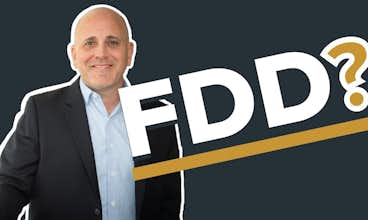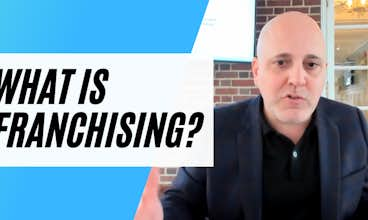Differences between the FDD and Franchise Agreement
The Franchise Disclosure Document (FDD) is a pre-sales disclosure document that provides franchise buyers with information about the franchisor, franchise fees, and opportunity. The Franchise Agreement is the legal agreement that creates a franchise relationship. Under the franchise laws, a franchisor must disclose its FDD to a franchisee candidate 14 days before signing a franchise agreement or accepting any fees.
While both documents are connected in the franchising process, each serves a different, though equally important, purpose. Below we discuss the differences between the FDD and franchise agreement in more detail
The FDD
The Franchise Disclosure Document (FDD) is pre-sales disclosure document required under the franchise laws. The purpose of an FDD is to give franchise buyers detailed information about a franchise opportunity before buying a franchise or signing a franchise agreement.
Under the Federal Trade Commission (FTC) Franchise Rule, franchisors are legally required to disclose the FDD to a prospective franchisee no later than 14 days prior to signing a franchise agreement or accepting fees related to the sale of a franchise. The purpose of this disclosure period is to allow prospective franchisees time to review the FDD with a qualified franchise attorney before investing.
The contents of the FDD are designed to educate prospective franchisees about the franchise, including but not limited to financial performance data, ownership and affiliation information, fees, territories and more. The disclosure items contained within the FDD also include a summary breakdown of the franchisors’ legal obligations and relationship to the franchise buyer. These obligations include the level of support the franchisee will receive from the franchisor, terms and conditions, and more.
Within the FDD, franchisees should also expect to find copies of contracts they will be required to sign at the time of purchasing a franchise, including a sample of the franchisor’s standard franchise agreement.
The Franchise Agreement
The Franchise Agreement is a legal agreement that defines the relationship between a franchisor and a franchisee. It is signed by both parties at the time of the sale of a franchise.
Within the franchise agreement, the franchisor awards to the franchisee the license and right to utilize the franchisors’ trademarks, business systems, operations manuals, suppliers, sell the franchisor’s products and services, and more. The agreement also defines the franchisee’s designated territory for operations and describes the ongoing obligations of a franchisee including royalties, minimum financial commitments for marketing efforts, following the franchisor’s standards, among other obligations.
In addition to establishing the franchisee’s obligations, the franchise agreement also establishes the obligations of the franchisor to the franchisee in terms of ongoing support, training, and more.
In summary, the FDD is a pre-sales disclosure document designed to educate and inform the franchisee about the opportunity being offered before making a purchase. In contrast, the Franchise Agreement is a legal agreement between the franchisor and franchisee that is signed by both parties at the time of the sale of a franchise.



